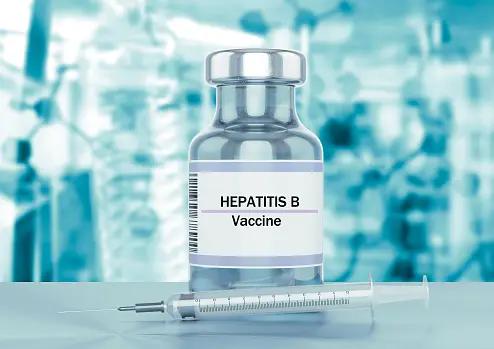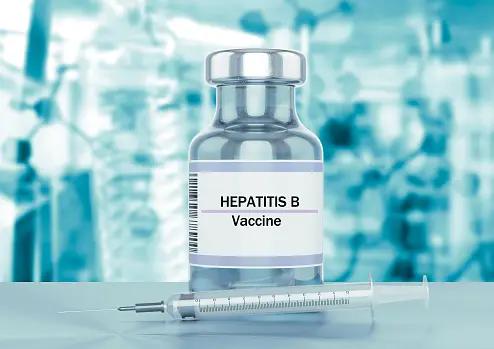
There is limited data on individuals who do not respond to standard Hepatitis B vaccines. These traditional vaccines, which target the Hepatitis B virus (HBV) using the Hepatitis B surface antigen (HBsAg), can achieve a protective immune response, defined as antibody levels of 10 mIU/mL or higher seroprotection response (SPR), in 35-80% of people with HIV (PWH) after 3 doses. The HepB-CpG vaccine has an ingredient called a TLR-9 agonist adjuvant. This ingredient helps the vaccine work better in PWH. Notably, for PWH who had not responded to previous vaccination attempts, both 2-dose and 3-dose regimens of the HepB-CpG vaccine demonstrated improved SPR rates when compared to the traditional 3-dose HepB-alum regimen.
By week 12 of the ACTG A5379 study, over 90% of those who received HepB-CpG achieved SPR, especially in comparison to traditional vaccine responses. 3 doses of HepB-CpG resulted in a higher proportion achieving titers above 1000 mIU/ml compared to 2 doses, and 3 doses of HepB-alum. Adverse events related to the vaccines were reported by 33%, 45%, and 36% of participants in the 2-CpG, 3-CpG, and 3-alum groups, respectively, primarily of Grade 1 and 2 severities. The most common adverse events were pain at the vaccination site, fatigue, headache, malaise, and myalgia.
Participants were divided into 3 equal groups. The first group got 2 shots of the HepB-CpG vaccine at the start and in the fourth week. Each shot contained 20 mcg of a protein from the HBV and 3000 mcg of an ingredient to boost the vaccine’s effect. The second group received 3 shots of the HepB-CpG vaccine at the start, in the fourth week, and after 24 weeks. The third group got 3 shots of a different vaccine called HepB-alum at the same time. The primary SPR was determined at week 12 for the 2-CpG group and at week 28 for the 3-CpG and 3-alum groups. The study was designed to evaluate the non-inferiority of the 2-CpG regimen compared to the 3-alum regimen with a margin of 10% and to determine whether the 3-CpG regimen was superior to the 3-alum regimen.
The study analyzed 505 participants (99% of the 508 in the primary analysis cohort). SPR was reached by 93% of participants receiving 2-CpG (n=174), 99% of those receiving 3-CpG (n=169), and 80% of the 3-alum group (n=162). The SPR difference between the 2-CpG and 3-alum groups was 13% (97.5% CI: 5%, 22%), demonstrating non-inferiority and indicating superiority. The SPR for 3-CpG was superior to 3-alum with a 19% difference (97.5% CI: 11%, 27%).
Eligible participants included people who were on antiretroviral therapy (ART) with CD4 counts of 100 cells/mm^3 or higher and HIV-1 RNA levels below 1000 copies/mL, without past or present signs of HBV infection or a response to the HBV vaccine.
Out of 561 qualified participants recruited across 41 locations in 10 countries: 64% were male, 42% were Black, 35% White, 17% Asian, and 22% Hispanic. The median age was 46 years (with a range of 18-70), 56% were enrolled in the US, 21% in Africa, 17% in Asia, and 6% in South America. The median CD4 count was 638 cells/mm^3, 94% had HIV-1 RNA levels below 40 copies/mL, 29% had a BMI over 30, and 13% had diabetes. A total of 96% completed all required doses.
As the ACTG A5379 study is currently ongoing, investigators at the Conference on Retroviruses and Opportunistic Infections (CROI), present the open-label trial assessing the immunogenicity of the vaccine in PWH who have not responded to previous vaccinations. The findings from this study suggest that the HepB-CpG vaccine, both in 2-dose and 3-dose regimens, offers a highly effective alternative. Considerations around vaccine safety, cost-effectiveness, and implementation strategies will be essential in translating these findings into clinical practice. These results could lead to more inclusive and effective vaccination strategies, reducing HBV in vulnerable populations.
Reference
Marks K, Kang M, Umbleja T, et. al. HepB-CpG Vaccine Is Superior to HepB-alum in People With HIV and Prior Vaccine Nonresponse: A5379. Poster #209 presented at CROI 2024. March 3-6, 2023. Denver, CO.








